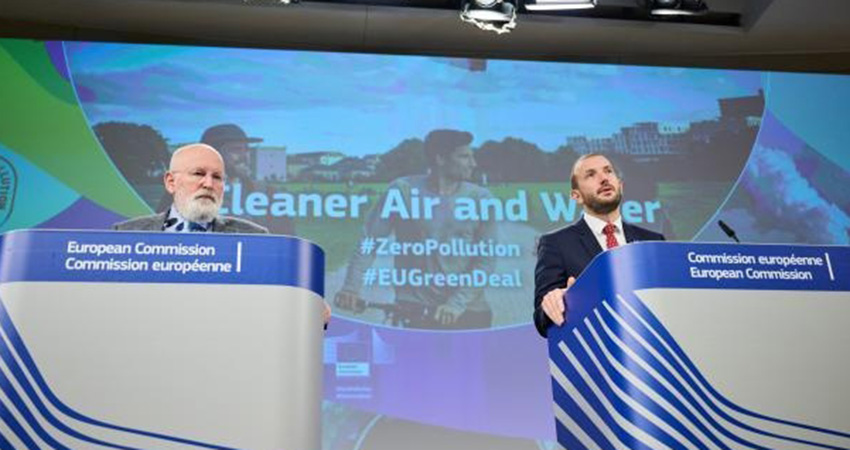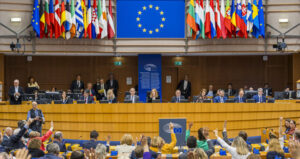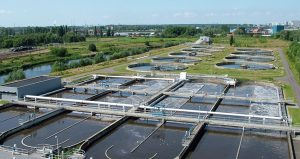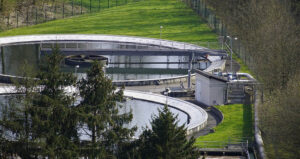EC presents proposal revised urban wastewater directive

-
 Fergal MacErlean
Fergal MacErlean
Share article:
More than thirty years after the European Union adopted the Urban Waste Water Treatment Directive the Commission has presented a proposal for a revision of the 1991 legislative act. Brussels announced the proposal for stricter rules for wastewater treatment the 26th of October.
While the Urban Waste Water Treatment Directive (UWWTD) has seen a high level of implementation – 98% of EU waste waters are adequately collected and 92% adequately treated, according to the 2019 REFIT Evaluation – the initial Directive was focused on pollution from domestic sources collected and treated in centralised facilities. Less attention was given to other sources of urban pollution from small settlements, non-centralised treatment facilities or the affect of heavy rains, which is an increasing problem with the consequent storm water overflows and urban runoff representing an E. Coli hazard.
Improving treatment process
The European Commission also says that the UWWTD is falling short of EU Green Deal policy objectives, other than in reducing pollution. The sector accounts for 0.8% of the total energy use in the EU and was responsible, in 2018, for 0.86% of the total EU greenhouse gas emissions. The Commission says almost one third of these emissions could be avoided by improving treatment process, better using sludge and increasing the uptake of energy efficiency and renewable technologies which remain low.
Polluter pays
President von der Leyen´s Executive also said that the ‘polluters pays’ principle is not sufficiently applied under the Directive and ‘access to sanitation remains an issue preventing the EU to fully implement’ the UN´s sustainable development goal of clean water and sanitation for all. Protest movement right2water claims eight million EU citizens do not have access to sanitation.
Forever chemicals
Member States are expected to have the new measures in place by 2040. Specifically, these require that total water pollution would be reduced by 4,8 million population equivalent (p.e.); 56,4 million p.e. for nitrogen; 49,6 million p.e. for phosphorus; 77,4 million p.e. for the toxic load of micro-pollutants and 24,8 million p.e. for E. Coli. Micro-plastics emissions should be reduced by 9%, mainly though actions on improved management of rain waters. In addition, 25 substances, including the ´forever chemicals´, per- and polyfluoroalkyl substances (PFAS), will be added to the Directive as priority substances that threaten water quality.
Eureau relatively positive
The proposal, unveiled in October, was welcomed by EurEau, whose members supply 96% of Europe´s population with water. Acting EurEau President, Pär Dalhielm, said it is: “suitably ambitious, as it courageously addresses the remaining environmental pollution and public health protection challenges we face in Europe. Additionally, it sets the agenda for waste water services. We acknowledge this vision and we are ready to realise it. “This is possible with time to implement, sufficient investments and regulations that help polluters play a more central role in contributing to the transition.” But, in a statement, EurEau took aim at the Commission for its only ‘lukewarm endorsement of Extended Producer Responsibility (EPR) schemes’.
Criticism pharmaceutical industry
The European pharmaceutical industry – represented by the Association of the European Self-Care Industry (AESGP), Medicines for Europe and the European Federation of Pharmaceutical Industries and Associations (EFPIA) – issued a joint statement in which it argues the new measures will jeopardize patients´ access to medicines. Jurate Svarcaite, AESGP director general, said: “We believe it is possible to do things differently. Countries like Switzerland have adopted a different cost-sharing funding model for improving urban wastewater treatment plants that is non-discriminatory and equitable.”


















